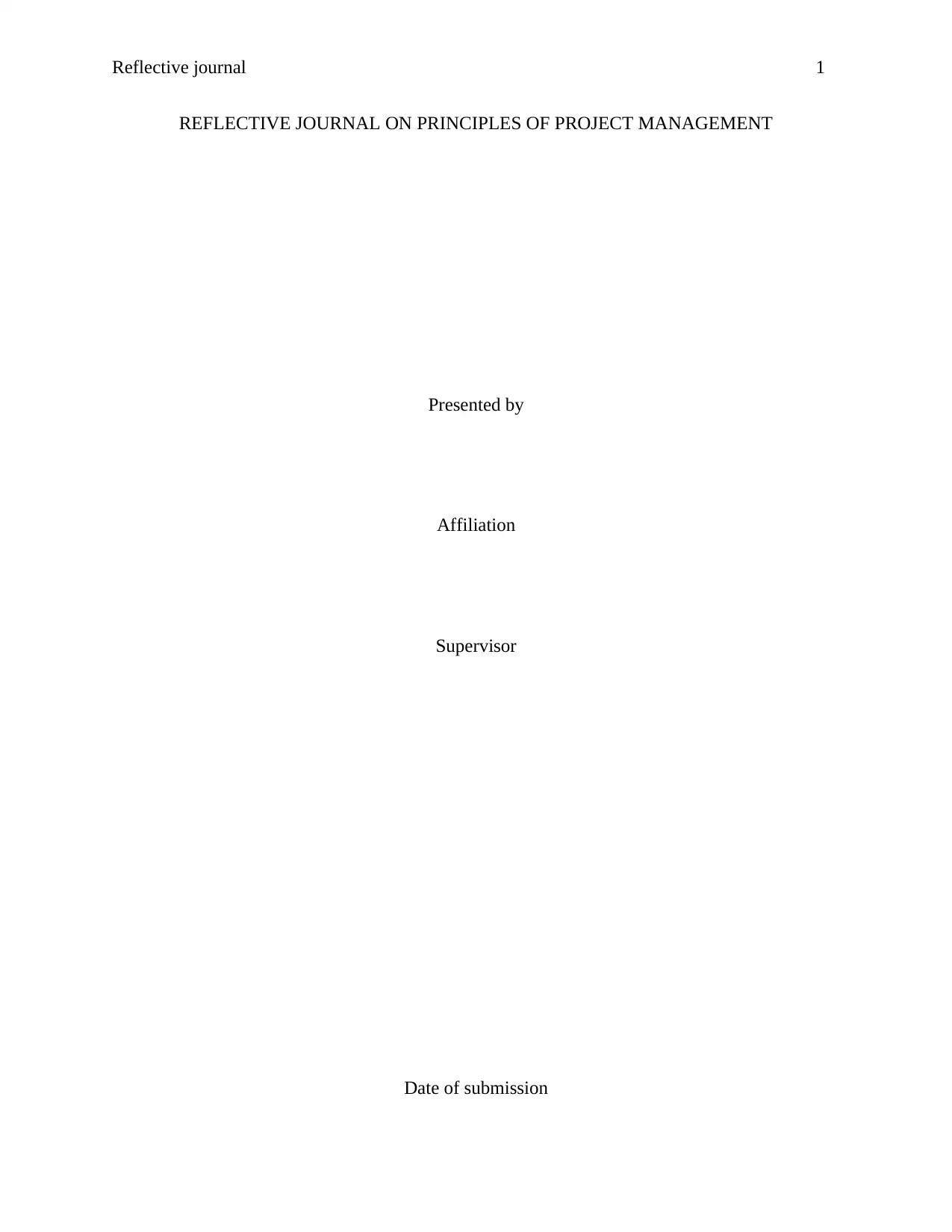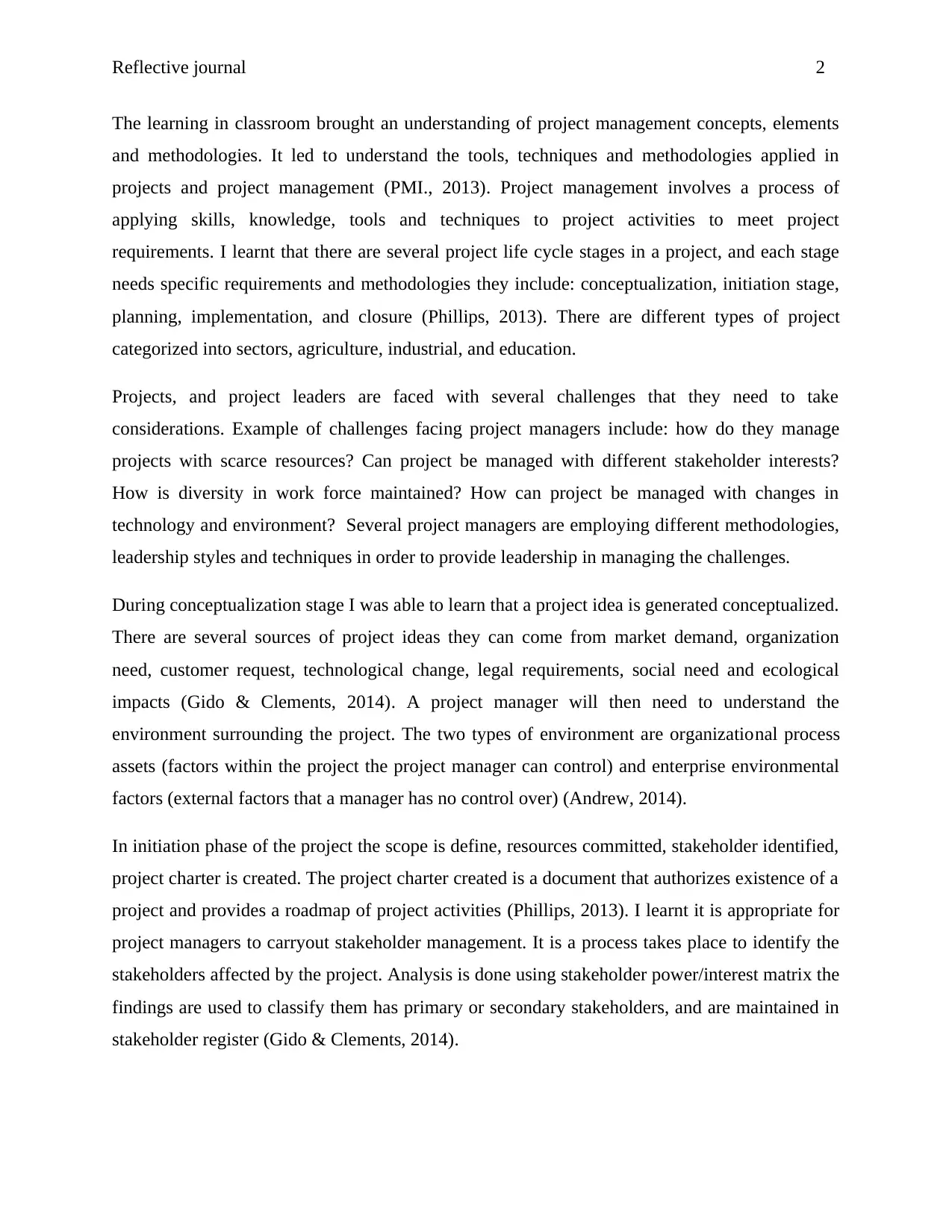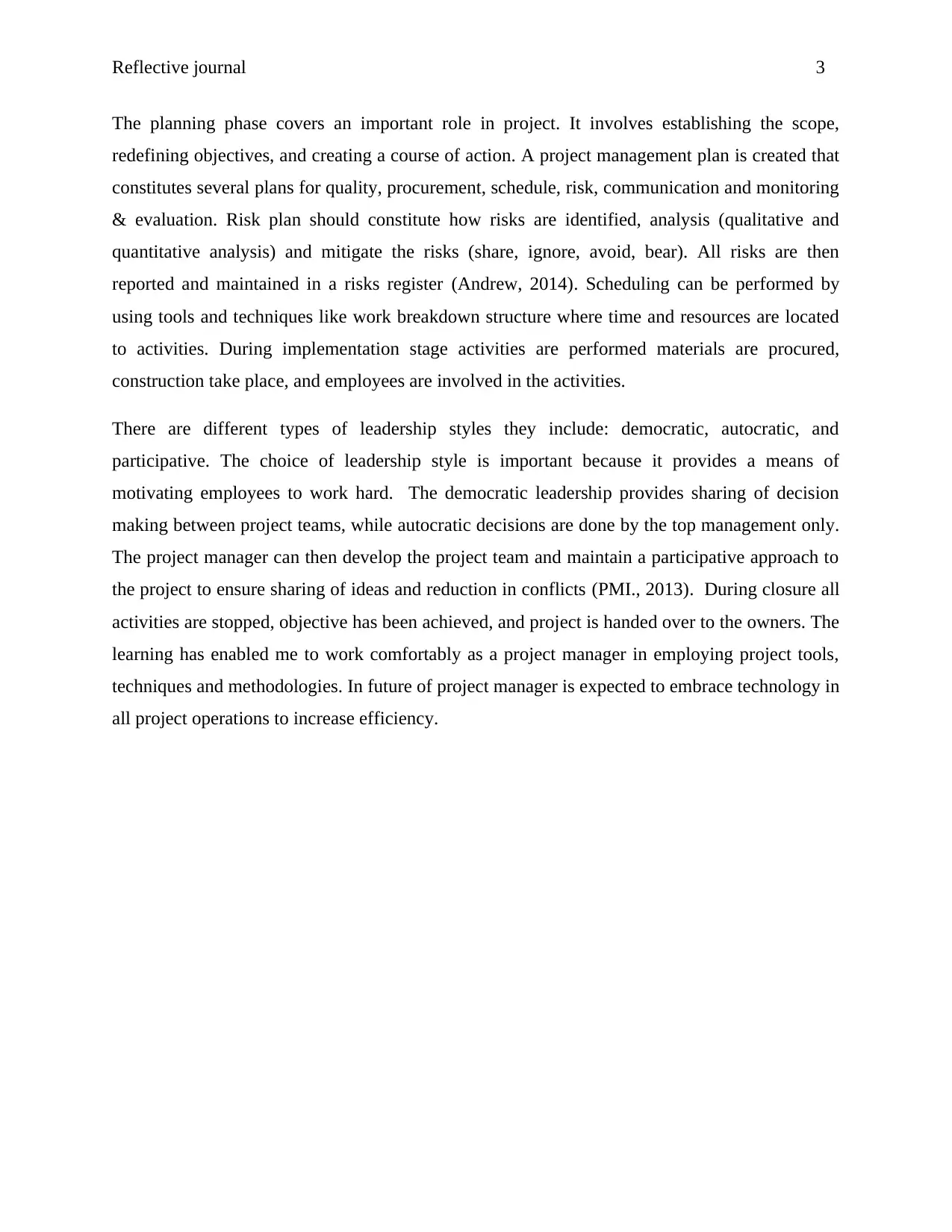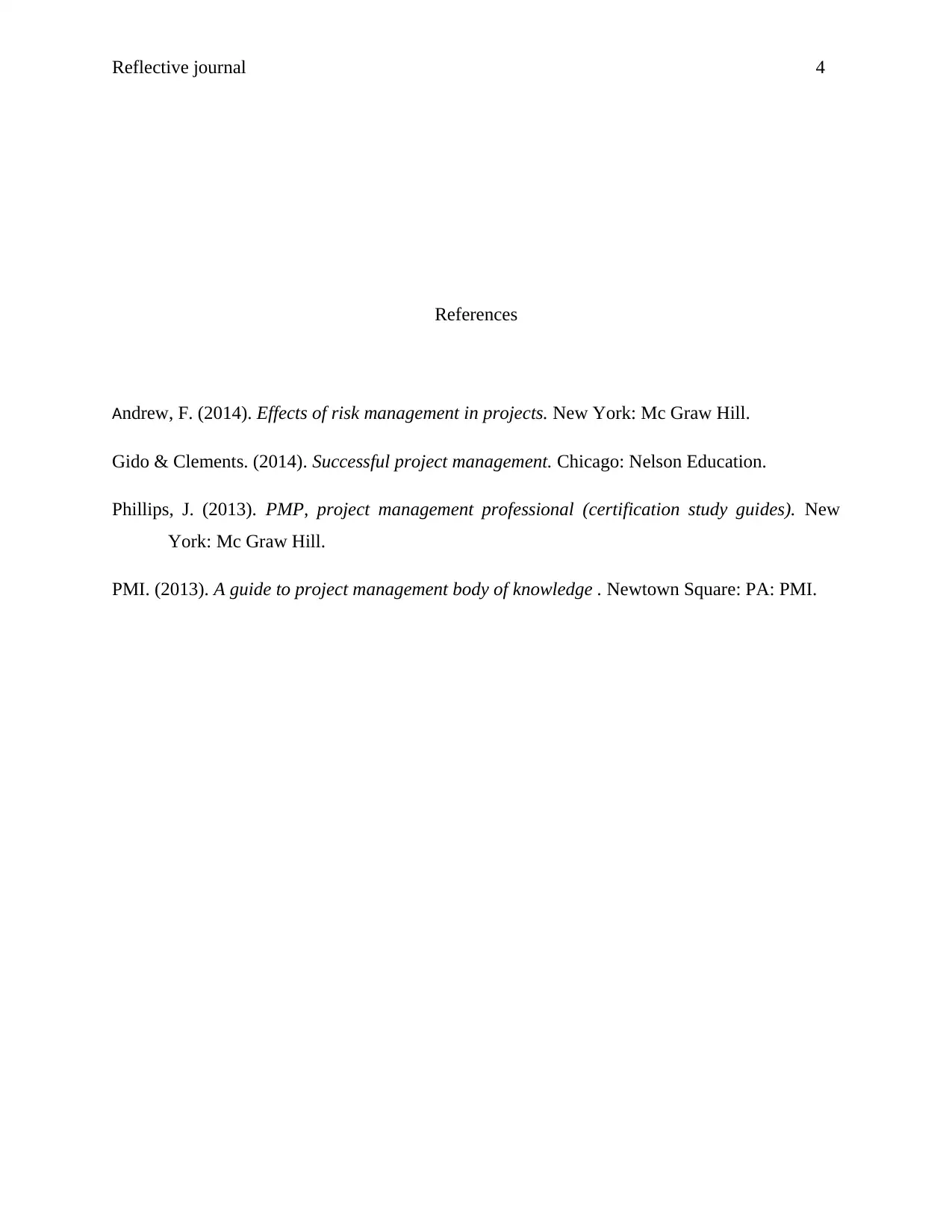Reflective Journal 1: Reflections on Project Management Concepts
VerifiedAdded on 2020/03/02
|4
|821
|114
Journal and Reflective Writing
AI Summary
This reflective journal explores the student's learning journey in a project management course, covering key concepts, elements, and methodologies. It details the project life cycle stages, including conceptualization, initiation, planning, implementation, and closure, and discusses the challenges faced by project managers, such as resource scarcity and stakeholder management. The journal highlights the importance of stakeholder management, project planning, and the use of different leadership styles. The student reflects on the sources of project ideas, the significance of organizational and environmental factors, and the application of tools and techniques like work breakdown structure. The journal also emphasizes the role of technology in enhancing project efficiency and concludes with a reflection on the student's preparedness to work as a project manager.
1 out of 4











![[object Object]](/_next/static/media/star-bottom.7253800d.svg)